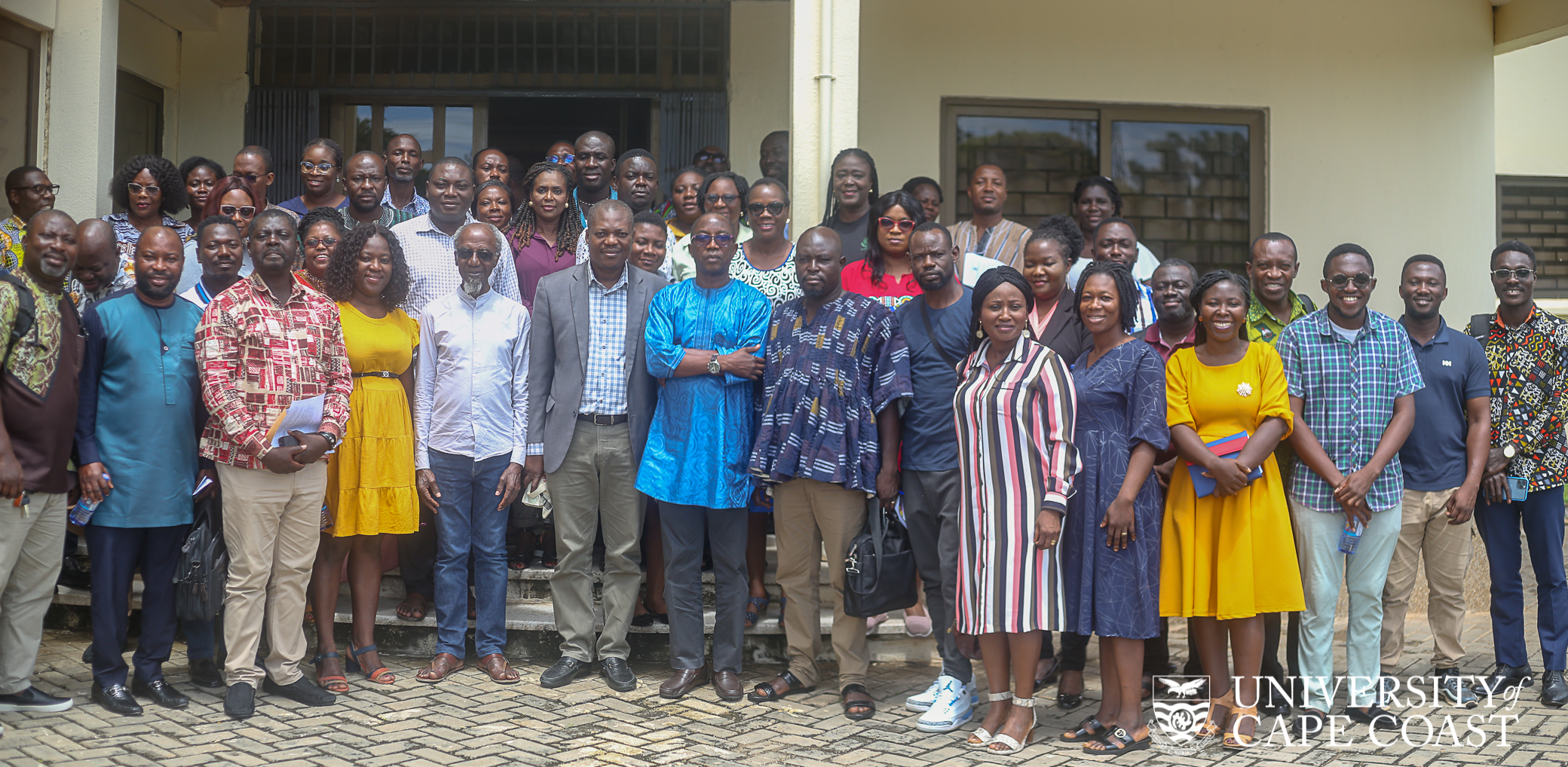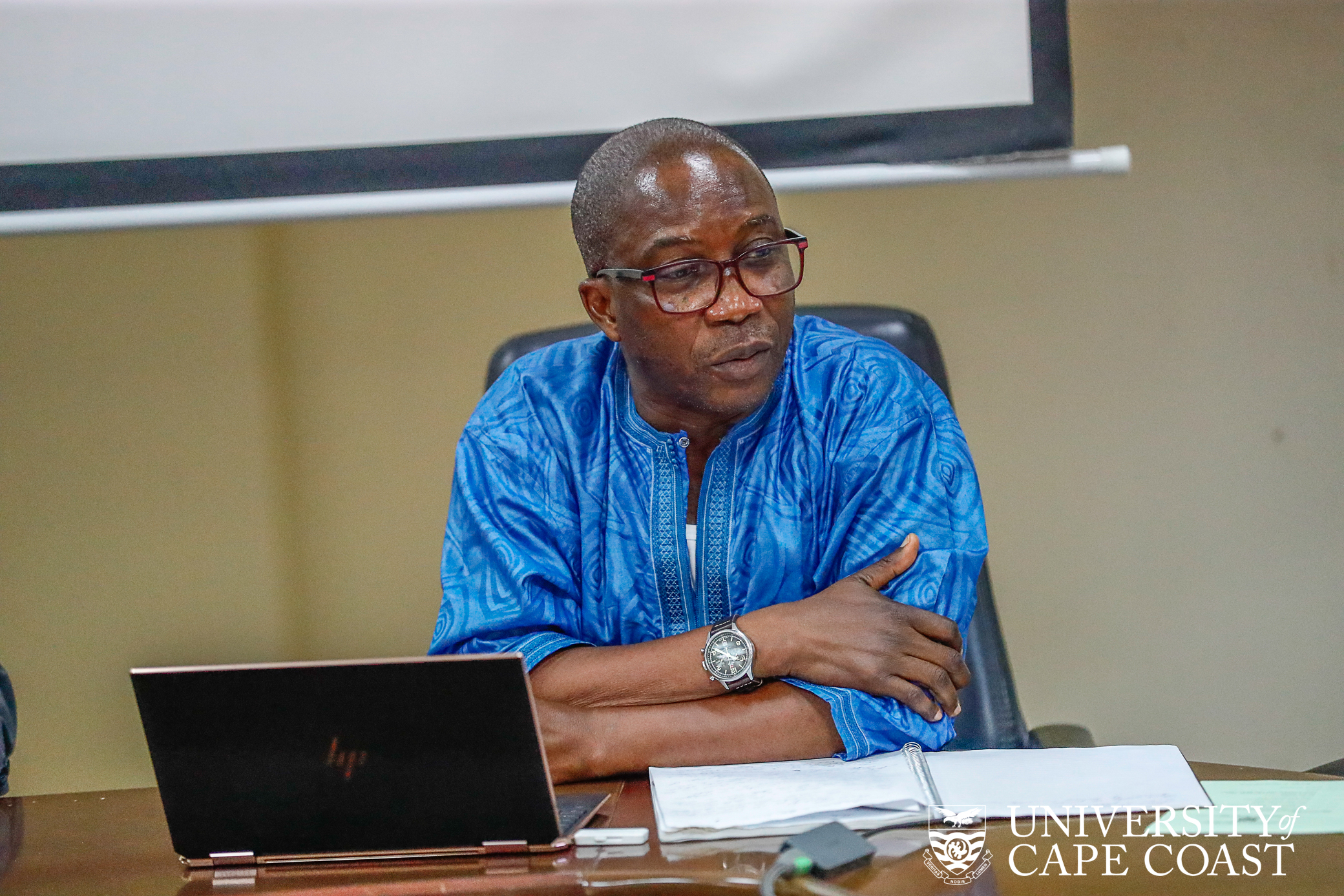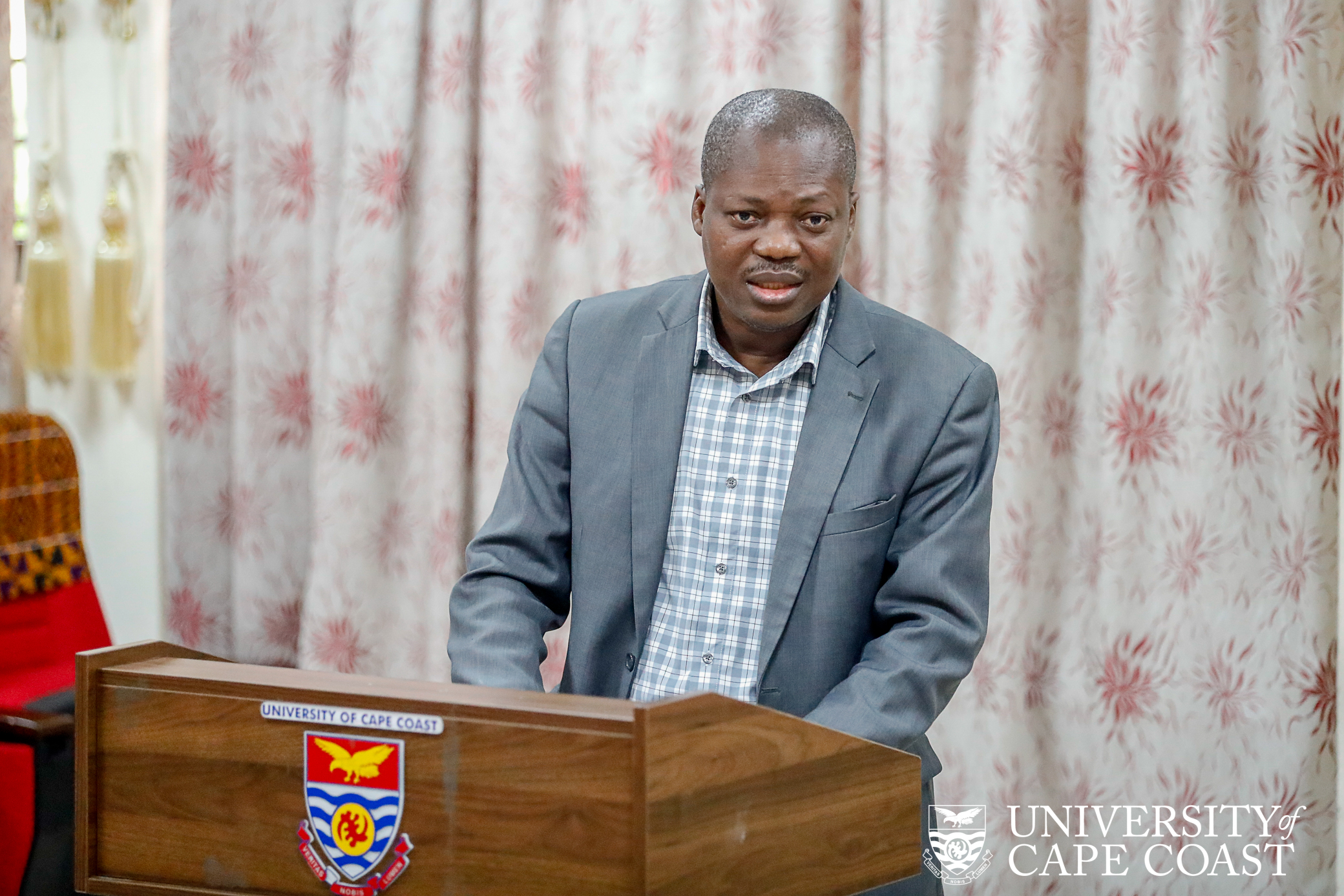The School for Development Studies (SDS) under the College of Humanities and Legal Studies has commemorated the World Development Information Day 2023 to raise awareness of developmental problems and the need to strengthen international cooperation to solve them.
The ceremony, held on the global theme: “Harnessing the Power of Information and Communication Technologies to Build a Better World,” had in attendance management, staff and students of SDS as well as officials and dignitaries from other state institutions, among others.
In a keynote address, the Executive Director of Third World Network, Dr Yao Graham, stated that there was the need for stakeholder engagement in debt management in Ghana.
Dr Yao Graham addressing participants in the workshop
He indicated that the debt crisis in the country was as a result of the weak control of citizens over political parties.
"It is important for citizens to begin to express themselves and voice out their opinions when it comes to debt management in the country", he posited.
Dr. Graham, who spoke on the local theme: "Labour and Debt Crisis", revealed that the debt crisis in Ghana was largely dependent on the inefficient economic modules and political manipulation.
"Debt crisis is not only financial crisis but a crisis of economic modules", he commented.
The current economic crisis, he said, was the deepest crisis the country has had since 1975 and 1983.
He further attributed the country’s economic challenges to the accumulation of borrowing by successive governments.
Some participants at the workshop
Additionally, he noted that there was an existential threat to Ghana's economy, especially in 2024 as a result of the upcoming elections; maintaining that there would be fluctuations in economic policies to woo voters.
"The crisis of politics is directly related to the crisis of the economy", he noted.
The Executive Director for Third World Network- Africa (TWN) indicated that although the International Monetary Fund (IMF) support and reliefs were beneficial to countries which sought assistance from the fund, it was also a contributing factor to a fall in the economy of developing countries including Ghana.
“Ghana's domestic debt is 42% and the foreign debt is 58%”, he stated.
According to him, Ghana still relied heavily on cocoa, gold and oil as the primary revenue sources.
"The mantra of creating an enabling environment for foreign investors had become a stifling environment for citizens", he added.
The Dean of School of Business, Prof. John Garchie Gatsi, noted that the theme for the lecture was timely and of much relevance to the country at large. He added that the topic has a clear reflection on labour income".
Prof. John Garchie Gatsi
Prof. Gatsi, in his closing remarks, added that debt crisis should be considered through the lens of the impact on labour, Ghana's debt practice and historical perspectives.
According to the Dean, Ghana's debts were no longer from bilateral and multilateral debts but also from eurobonds and commercial debts.
He said much as the country might not encounter the consequences in the short term, the negative impact might be felt in the medium to long term.
Prof. Gatsi said the basic principle in crisis time was efficient spending and, therefore, called for prioritization of expenditure to ensure efficiency.




